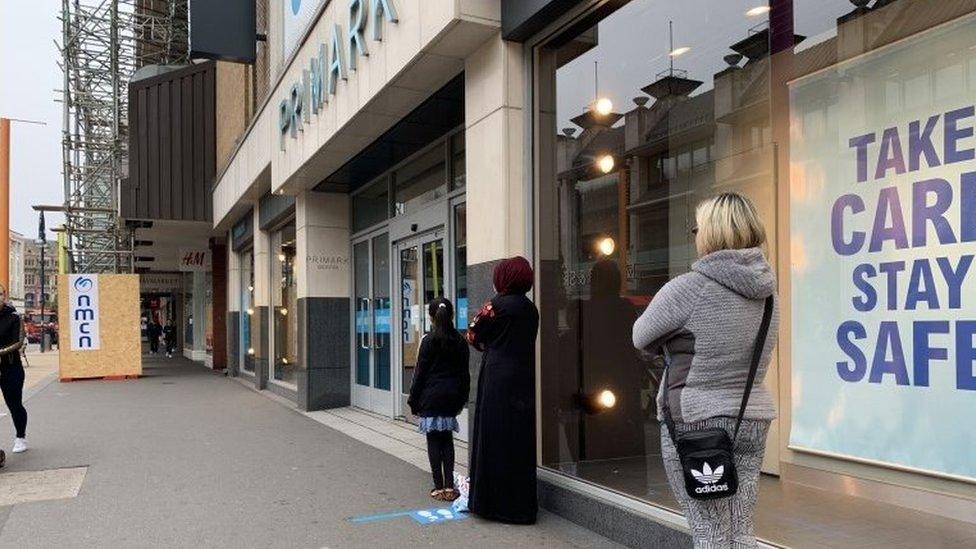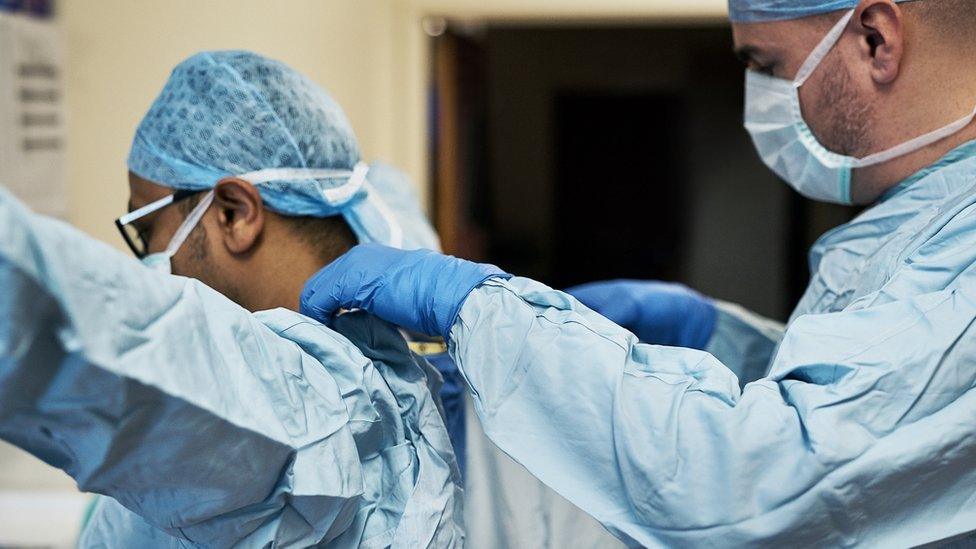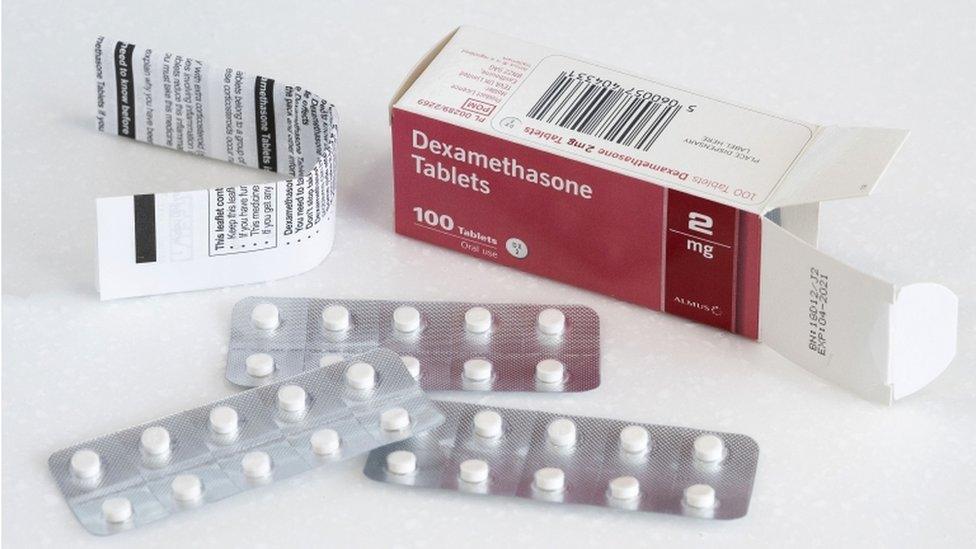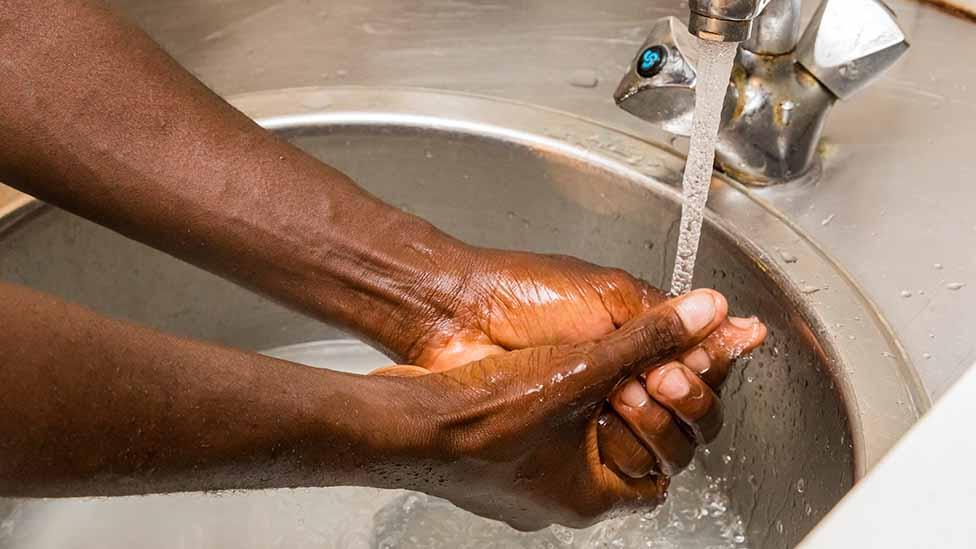Leicester and Cleckheaton see coronavirus 'outbreak'
- Published

Leicester City Council's director of public health said lockdown rules had been relaxed but there was still a risk of infection
Coronavirus outbreaks have been reported in Leicester and at a meat processing plant in Yorkshire.
About 25% of Leicester's 2,494 confirmed Covid-19 cases were reported in the last two weeks, according to official figures.
Health Secretary Matt Hancock said officials were working hard to track those affected.
Meanwhile a number of confirmed cases have reported at the Kober factory in Cleckheaton, a supplier to Asda stores.
Leicester City Council's public health director said the numbers - 658 in the last fortnight - were "relatively small" but of concern.
Ivan Browne said the city had high levels of health conditions such as diabetes, "pockets of deprivation, and a very significant Black, Asian and Minority Ethnic population".
"We know that these factors combine to create a high-risk, more vulnerable population that's more susceptible to coronavirus," he said.
Despite the relaxing of lockdown rules, Mr Browne warned that the country was still in the grip of a pandemic.
At the daily Downing Street briefing, Mr Hancock said there was an "outbreak right now in parts of Leicester" and that officials were working hard to track those affected.
He also mentioned a further clutch of cases in Kirklees, West Yorkshire.
On Thursday evening, Asda said it would temporarily close the meat processing plant.
In a statement, it said: "As soon as we became aware that some colleagues at our Kober site may have Covid-19, we responded swiftly and worked collaboratively with the local authority and Public Health England to test all colleagues.
"We have also voluntarily closed the site to protect colleagues and prevent any further transmission.
"Colleagues who need to self-isolate will receive full pay and we aim to reopen the facility early next week."

Matt Hancock announced there had been an "outbreak" in Leicester
The manner in which the news was broken by Mr Hancock drew criticism from some Labour MPs.
Tracy Brabin, the MP for Batley and Spen, which includes the site of the meat processing plant in Cleckheaton, said she was "extremely disappointed" the health secretary announced the outbreak at the daily briefing claiming it had "instilled anxiety" in her constiuency.
She added it was "incredibly careless" and risked "inciting panic among local communities".
Huddersfield Labour MP Barry Sheerman tweeted that the announcement had also caught him off guard.
Allow X content?
This article contains content provided by X. We ask for your permission before anything is loaded, as they may be using cookies and other technologies. You may want to read X’s cookie policy, external and privacy policy, external before accepting. To view this content choose ‘accept and continue’.
In a tweet, external, Kirklees Council's public health director Rachel Spencer-Henshall said there had been a number of positive cases of Covid-19 at a workplace in the area.
The authority had provided support to managers and employees to minimise further transmission, she said, and had offered testing to staff.
Mr Hancock praised local authorities and public health officials for doing a "magnificent job".
Earlier, it emerged workers at two food processing plants in Wales had tested positive for coronavirus.

Why does coronavirus hit so many meat processing plants?
Analysis by David Shukman, science editor
Anywhere cold, damp and indoors is an ideal environment for the coronavirus to thrive.
It survives best on cool surfaces, especially if there's no dry breeze to get rid of the moisture or any ultraviolet light from the sun to kill it off.
Add to that the challenges of social distancing on a busy production line, together with loud machinery forcing staff to raise their voices.
Researchers know that situations where people sing - or have to shout - increases the chances of them projecting the virus to others nearby.
According to Prof Calum Semple, an infectious disease specialist at the University of Liverpool and an adviser to the government, meat processing plants can be "a perfect environment for the virus to persist on surfaces and in the air".

THE R NUMBER: What it means and why it matters
AIR TRAVELLERS: The new quarantine rules
LOOK-UP TOOL: How many cases in your area?
RECOVERY: How long does it take to get better?
YOUR QUESTIONS: Our experts have answers

Follow BBC East Midlands on Facebook, external, Twitter, external, or Instagram, external. Send your story ideas to eastmidsnews@bbc.co.uk.
- Published19 June 2020

- Published18 June 2020

- Published17 June 2020

- Published17 June 2020

- Published19 June 2020
